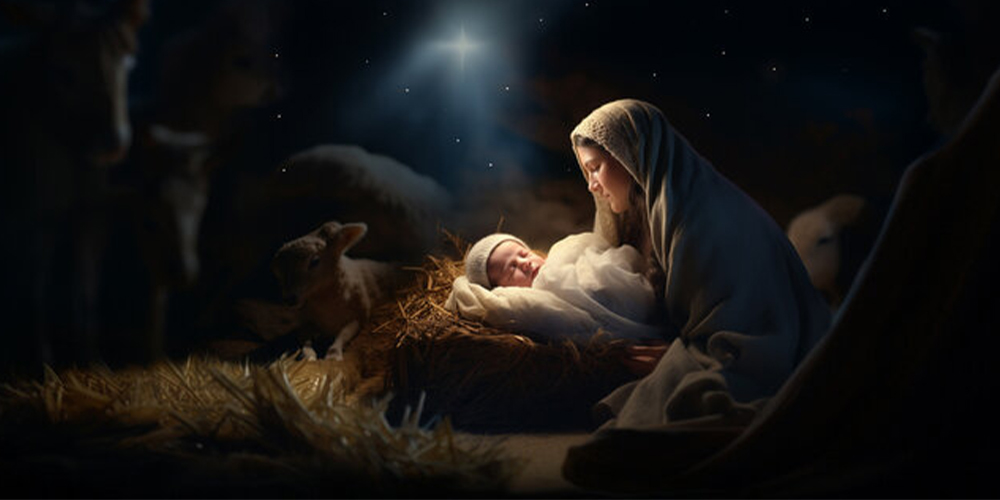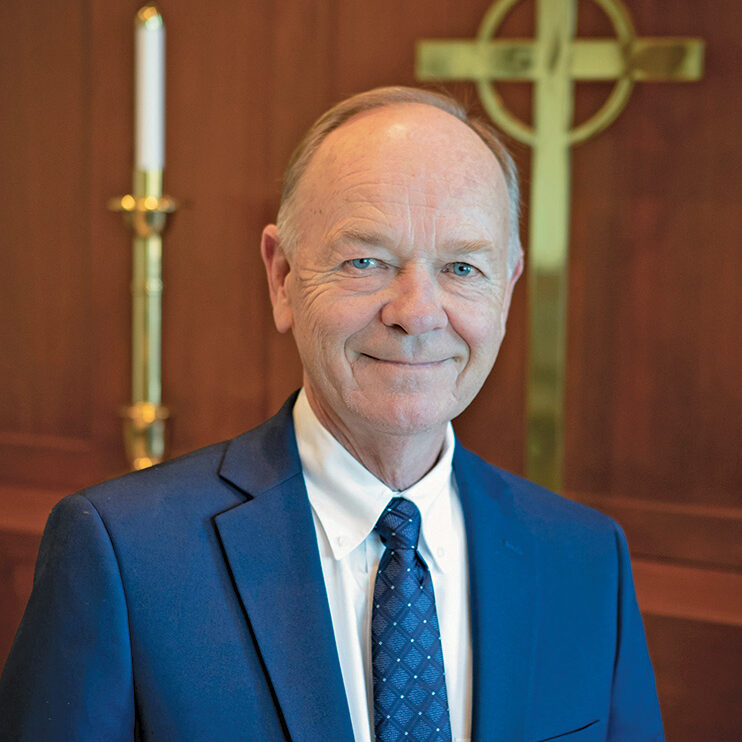 |
We tend to use the term miracle incorrectly. “It was a miracle that our football team won the game in the last seconds!” “It was a miracle that I didn’t hit the deer that ran right in front of my car!” “It was a miracle that I found the wallet I lost in the park!”
All of those things may be amazing and unusual, but they likely are not miracles.
By definition, a miracle is something that happens when God himself intervenes to set aside the laws of nature. When God caused the waters of the Red Sea to part, leaving a dry path for the Israelites to follow, that was a miracle. A sea doesn’t do that unless God himself intervenes. When Jesus turned simple water into wine, that was a miracle. When Jesus raised Lazarus from the dead, that was a miracle.
This month, we remember and celebrate another truly miraculous event. Long before that event, Isaiah described the miracle that God himself would bring about: “The virgin will conceive and give birth to a son, and will call him Immanuel” (Isaiah 7:14). Luke recorded how that miracle happened: “She gave birth to her firstborn, a son. She wrapped him in cloths and placed him in a manger” (Luke 2:7). The angels announced the miraculous birth to the shepherds: “Today in the town of David a Savior has been born to you; he is the Messiah, the Lord” (Luke 2:11). Another miracle in the form of a special star led the wise men to the place where the newborn Savior was staying.
A young woman who is a virgin simply cannot conceive a child unless God himself steps in. Mary recognized that truth when she was told by the angel that she would have a child. “How will this be . . . since I am a virgin?” (Luke 1:34). The angel explained that this would take place only by God’s special intervention: “The Holy Spirit will come on you, and the power of the Most High will overshadow you. So the holy one to be born will be called the Son of God” (Luke 1:35). The apostle John would later write how the second person of the Trinity (the Word) miraculously became one of us: “In the beginning was the Word, and the Word was with God, and the Word was God. . . . The Word became flesh and made his dwelling among us. We have seen his glory, the glory of the one and only Son, who came from the Father, full of grace and truth” (John 1:1,14).
Remembering the miraculous way in which Jesus was born is at the heart and center of our celebration of Christmas. The news of that miracle far outweighs all the busyness and distractions that have become such a part of our world’s celebration of Christmas. Gift giving and family gatherings at Christmas bring us happiness and joy. But those things pale in comparison to the lasting joy and peace brought by the miraculous birth in Bethlehem.
As we ponder that miracle, we also must recognize the even greater miracle that made it happen. The greater miracle is that we have a gracious God who had promised, and now has acted, to save sinners like us. “When the set time had fully come, God sent his Son, born of a woman, born under the law, to redeem those under the law, that we might receive adoption to sonship” (Galatians 4:4,5). To accomplish that saving purpose, God himself became one of us to live, suffer, die, and rise again to save us and make us members of his family. What greater miracle could there be? What better reason could we have to celebrate this Christmas?
Author: Mark Schroeder
Volume 110, Number 12
Issue: December 2023
- The mission of WELS schools
- Blessings in tragedy
- Confusion or comfort?
- Never take it for granted
- A season of miracles
- Don’t miss the point
- Another humbling experience
- Our cross and crown
- The public ministry and the divine call
- No fear of bad news
- Big challenge, bigger blessings
- Our worldwide fellowship
- Seize the opportunities
- The Lord takes care of his church
- Savor the rain
- Up close and personal
- It’s never too early
- Thanks for not giving
- Hope for the future
- Our task is not over
- Update on WELS’ effort in Vietnam
- More workers for a bountiful harvest
- 150 years of fellowship
- A unique system of schools
- God’s cure—for everything
- Lenten repentance, Lenten appreciation
- Pray for us
- Plan with wisdom and faith
- Purposeful discussions
- Upholding biblical values
- President’s message: To judge or not to judge
- President’s message: A field ripe for harvest
- President’s message: Thoughts about the new hymnal
- President’s message: Cooperating in externals
- President’s message: Canceling the cancel culture
- President’s message: Making normal a reality
- President’s message: The fields are ripe for harvest
- President’s message: The end of the story
- President’s message: Blessings small and large
- President’s message: Standing on the truth
- President’s message: Peace on earth—but what kind?
- President’s message: Thankful—even now?
- President’s message: More than dollars and numbers
- President’s message: A time for trust
- President’s message: Future unknown, future certain
- President’s message: God’s work does not stop
- President’s message: A lesson to be learned
- President’s message: Having the right tools
- President’s message: What kind of leaders?
- President’s message: What’s love got to do with it?







